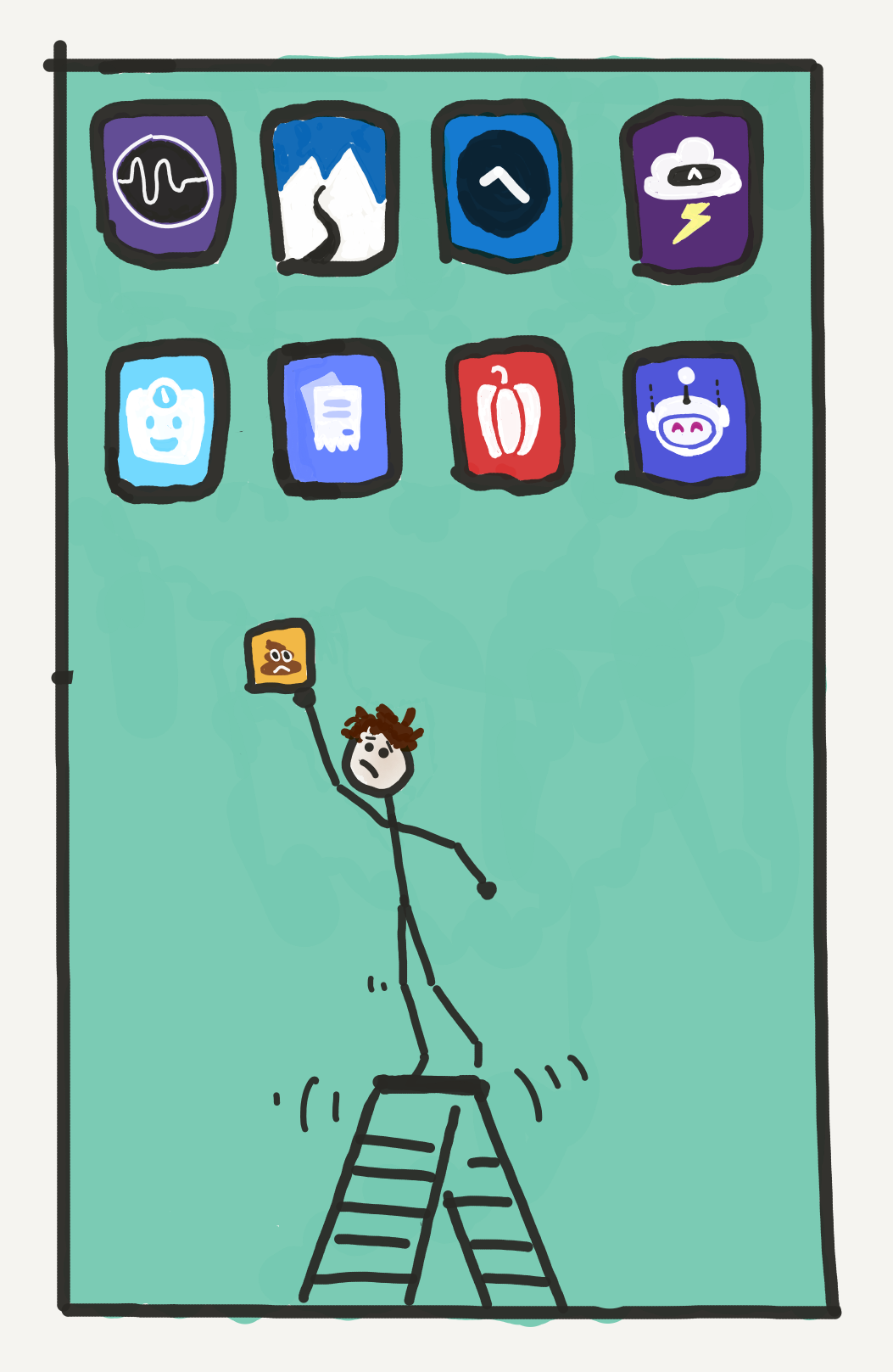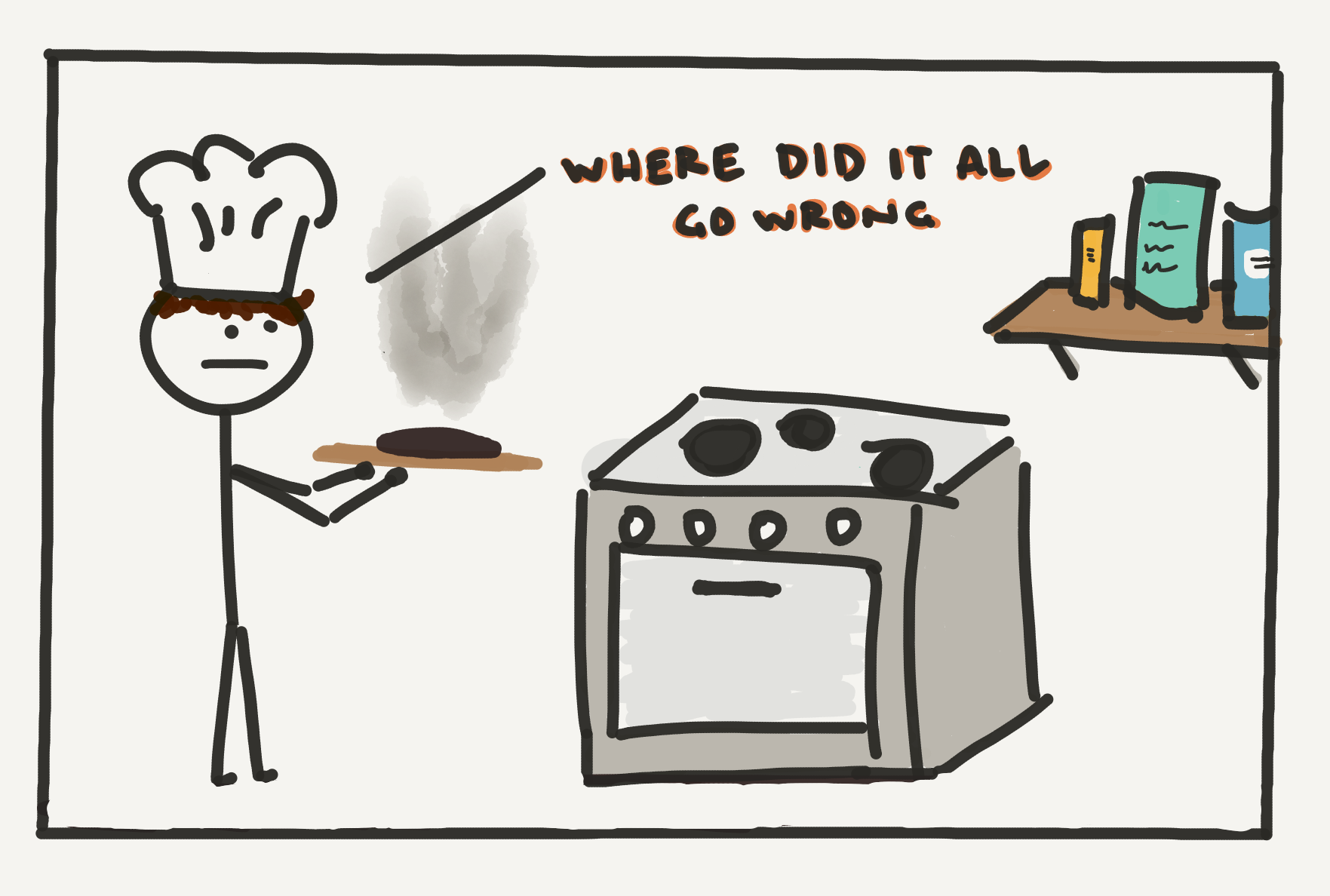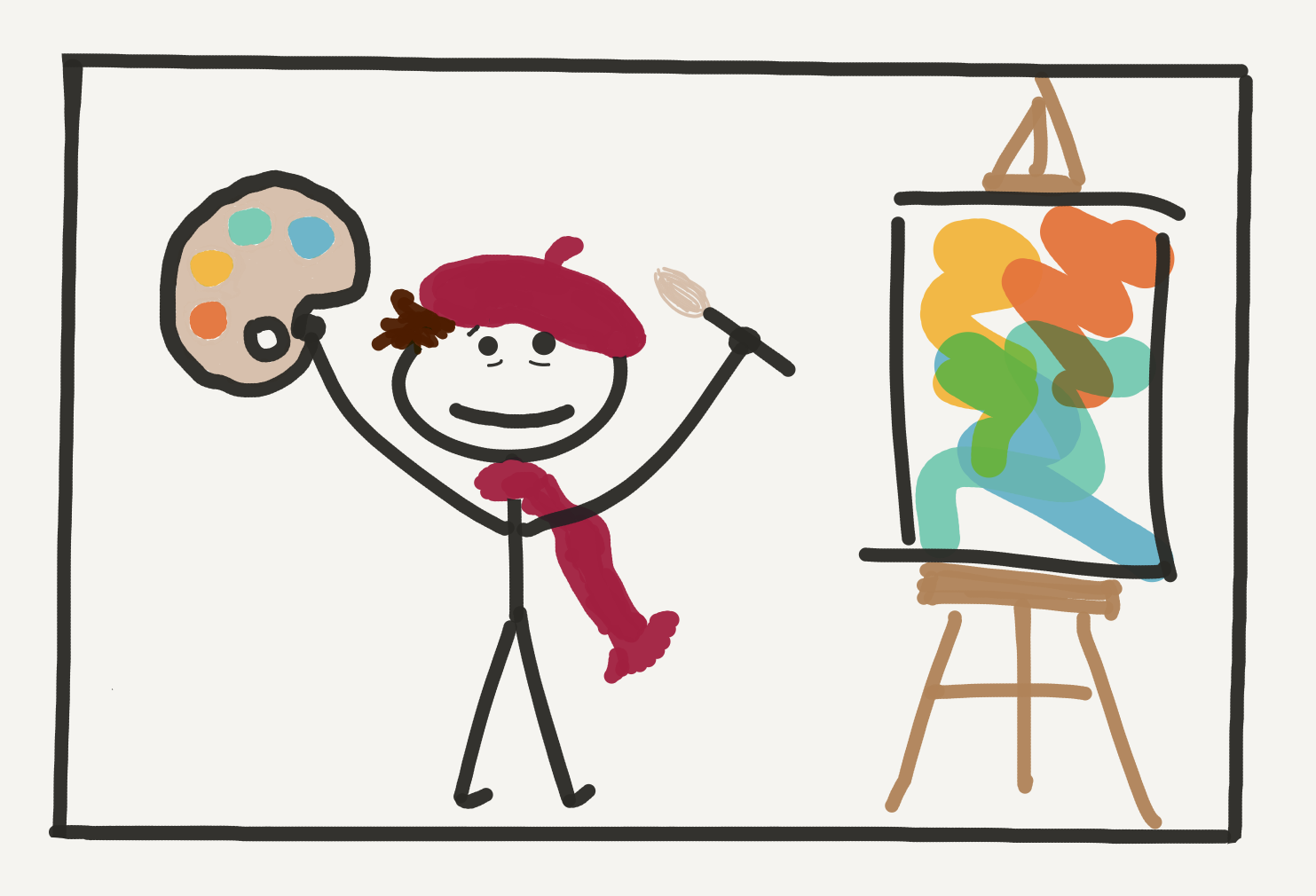Has this ever happened to you?
You’re an iOS developer. Maybe you’ve been doing it for a while, or maybe you’re new to the scene. Maybe you prefer to think of yourself as an “iOS engineer,” because it sounds better and no one seems to agree on whether there’s a difference. Whatever the situation: you’re feeling restless. You’ve worked on interesting projects before — successful ones, even — and you recognize that getting paid to do what you do is in many ways a privilege. Nonetheless, you can’t shake the feeling that none of the work you’ve done is truly yours. Much of your time has been spent helping others achieve their goals — and that’s okay! — but you increasingly feel like you’ve got some of your own goals to chase too.
You want to build something that belongs to you, you want to pour your heart into it, and frankly, you’d like to find some success doing it. “It’s time,” you proclaim boldly, “for me to build an app.”
You built an app or two on your own, back in the day. Oh, the naïveté of your youth! You tried to be smart about it and temper your expectations, but be honest: you were pretty sure that thing you built — you know, the one with the ball of mud code base, the baffling feature choices and the inscrutable UI — was going to be a hit. You shared it with your aunts and uncles on Facebook, sent a few bland emails to some app review websites, and sat back and waited for this thing to spread like wildfire.
It didn’t.
This time, though, maybe things will be different. You’re much older and wiser. You’ve got loads of real-world experience under your belt now, and, albeit from a distance, you’ve seen what it takes to have some success on the App Store in 2020. If all these other folks can do it…surely there’s space for you too?

Yeah, I’ll just put this…right…here…
From the moment you decided to get into iOS development, your career has been coloured by this vague idea that true success in this industry is nearly or completely single-handedly building something that grabs people’s attention. At the end of it all, you don’t just want to be “[Your Name Here]”. No, at the pinnacle of this climb, you want to be known as “[Your Name Here], creator of [Your Brilliant and Beloved App]”. Of course, rationally, you know there are loads of people who are living successful and fulfilling careers as employees at great companies, but a big part of you still feels that, as someone who can competently design and build software, you are uniquely positioned to create your own life’s work. That’s what you’ve been led to believe, anyway. And isn’t that the dream? Wouldn’t it be a shame not to try? You’re tired of deferring your dreams to your future self; it’s time to act!
So, naturally, you fire up Twitter.
You’ve been lurking on Twitter for years, but you’ve never tweeted much. A few times, you’ve toyed with the idea of actually trying to build some sort of “presence” on Twitter, but there are a few things that keep getting in the way:
- You’ve never felt you have anything interesting to say that hasn’t already been said by at least a thousand other people desperately trying to build their own Twitter presence.
- You’re already addicted enough to Twitter without chasing likes and retweets.
- You basically believe that Twitter is bad for you and for society.
This has tended to manifest itself in the following way:
- Every year or two, you work up the courage to tweet something clever.
- Zero (0) people like your tweet — probably because you effectively have zero (0) followers.
- You delete your tweet sheepishly and hope no one noticed you had the audacity to think you were clever enough for Twitter.
Now, though, you are not only older and wiser; you are emboldened by your decision to jump head-first into building your own app. You’re feeling a little bit reckless, in an intentional and exciting sort of way. And for better and for worse, anyone who’s anyone in the iOS community seems to be on Twitter. If you want a shot at making a name for yourself — at going from “[Your Name Here]” to “[Your Name Here], creator of [Your Brilliant and Beloved App]” — having a real presence on Twitter kind of seems like a must.
So, you start following more iOS folks, and you endeavour to start shamelessly yelling into the void.

*Crickets*
In the beginning, you’re feeling confident. You don’t have any followers yet, but you believe in your ability as an iOS developer, and you’re committed to this new idea that, actually, you do have something unique and interesting to say, damn it, and there are strangers out there who want to hear from you. You comment on an iOS celebrity’s tweet (who at this point, to you, is anyone with more than a few hundred followers)…and they like it! You feel seen. What a rush.
Sometimes you tweet, and no one seems to care, but you brush it off. “Just keep yelling,” you tell yourself. Slowly but surely, some followers of your own start trickling in. One day you tweet about something you’re working on — maybe it’s a sneak peek at your new app, or a blog post you wrote — and a few complete strangers go out of their way to comment on your thing in a kind and supportive way. “Thanks, [Stranger’s Name]!”, you reply. You make sure to use their name so that you come across as genuine. You feel validated. Hey, Twitter is fun!
One day you’re feeling a bit down, and out of nowhere, unprompted, someone tweets about some work you shared, singing your praises and encouraging others to check it out. Your mood flips. What a thrill! What a supportive community! You immediately want to get more involved and help lift up others. Your app is coming along, and it looks like there might actually be some people out here who care about what you’re doing. This is good! If you can keep this up, then with a bit of luck, you might just build up enough of an audience to give your app some traction when it finally comes out. You’re feeling hopeful.
Eventually, though, the novelty starts to wear off a bit. Realistically, you’re still miles away from having any sort of real iOS Twitter clout, the work required to get there seems like an unpredictable slog, and you start to feel a little bit uneasy about the whole thing.
For starters, it sure can be hard not to live and die by the reaction you get to your tweets. Unsurprisingly, you find that the sense of validation you get from a like or a retweet feels really good, for a minute, while the lack thereof can kind of hijack your mood, and make you question…[gestures broadly] everything. You feel this happening, and you try your best not to tie your self-worth so tightly to the whims of social media, but that sure is easier said than done — especially when it’s all tangled up with this big decision you made to build your own product and prove to yourself that you can grind your way to some level of success.
You give your head a shake. “I’m not here for an ego boost,” you think to yourself. You want to get to know some like-minded people! You want to learn from those who are a few steps ahead of you on your iOS development journey, and help out those who are a few steps behind! You want to put yourself out of your comfort zone a little bit to challenge yourself and grow as a person! That’s all true, and it makes you feel better, for a while.
But soon, your human nature starts to get the better of you in a different way. Naturally, you’re following a bunch of well-known and generally successful members of the iOS community, because you figure you stand to learn a lot from their experiences, and because it’s a good way to get involved in conversations that might expose you and your work to a bunch of other people in the community. Unfortunately, this can quickly turn into a remarkably efficient way to bombard yourself with reasons to feel bad about your career. “Hold on, that person with 4 great apps in the App Store is how old?” “Wait, that dude is making how much money working for that amazing company?” “You’re telling me this person has written several books, hosts 3 podcasts, organizes community meet-ups, regularly speaks at conferences, has sold two companies, has won an Apple Design Award, is politically active, volunteers at a shelter twice a week, is an ultra distance runner, has 4 kids and is really into sourdough, while I…play a lot of video games, I guess?”

Suddenly, you’re spiralling. You decide to be self-deprecating about the whole thing — “I have no idea what I’m doing, ha ha” — because it works pretty well as a defence mechanism, but meanwhile you’re more doubtful than ever about the amount of time you’re pouring into your app. What made you think this was worthwhile, anyways? What made you think you’re talented enough to pull this off? What are you missing out on by spending all this time on your silly pet project?
And then things really start to go off the rails. Since you feel like you’re playing catch-up with all these successful people you’re trying to get in with, the progress you’re making on your app never feels like enough. It becomes hard to manage your time and balance your priorities, and when you’re not careful, other important aspects of your life fall by the wayside.
At your worst, you start feeling jealous of all these people who seem broadly to have “achieved” more than you. Why them, and not you? “Oh right,” you remember, “I haven’t actually built anything yet. That might help.” But then: why haven’t you? You’re getting old; what have you been doing all these years? The thought scares you into making more progress on your app, for a while.
Meanwhile, Twitter starts to feel like a strange and rather disingenuous game. You can’t think of anything worth saying, but you know you can’t grow your audience if you don’t say things, so you spend way too much time scrolling through tweets trying to find one you can leave an intelligent comment on — hopefully just clever enough that a handful of people will click through to your profile and follow you on a whim.
As you scroll, and scroll, and scroll, you see not only the big fish, but the little fish too. You see what appear to be passionate, talented and well-meaning people doggedly dedicating hundreds or thousands of hours towards projects they’re excited and hopeful about, bravely putting themselves out there, trying every way they know how to drum up interest on Twitter and share the amazing thing they’ve built with the world. Often, you see these attempts fall flat — a handful of likes, an encouraging comment or two, and then nothing — and your heart aches for these people. You see yourself in them, and you shudder.
You look back at the big fish, only to see them complaining about how they too feel insecure about their work, feel like imposters, feel like they haven’t achieved everything they can or should, and you believe them. Ultimately, it makes you pause and wonder: does the treadmill ever stop? What are you actually chasing here? It’s not just Twitter fame, surely. It’s much bigger and nobler than money, right? But then…what is it, exactly? For a while, you honestly can’t remember, and your motivation tanks.
Woof.
And then you’re in the shower at the end of another long and harrowing day on the internet, staring blankly at the tiles, when out of nowhere, a lightbulb goes off: you’ve got a solution to that UX problem that’s been nagging you for weeks! It’s an important piece in the puzzle, and suddenly that bigger feature idea that was bouncing around in the back of your mind fits beautifully into the rest of the app. Your mind is racing with new ideas to explore as you jump out of the shower and clumsily dry your hands before pounding some stream-of-consciousness thoughts into the Notes app on your phone.
Nothing in your world is more exciting right now than building this feature, and you can’t wait to show it to your partner, your roommate, or, really, anyone who’s willing to listen. Building this thing, and seeing it come to life, is a pure and genuine joy. You excitedly share a sneak peak of your work on Twitter, and suddenly, you remember what this is really all about: what a privilege — and what magic! — to put every ounce of creative energy you’ve got into something you can truly feel proud of, to use these remarkable machines we call “computers” to build something out of nothing, and to share that something — big or small, polished or half-baked, silly or profound — with other humans. Creativity for creativity’s sake is a noble and timeless endeavour, and, at the risk of sounding a tad melodramatic: you’re just happy to have skills that allow you to participate in this uniquely human tradition.

The creator creates!
Two hours later, your tweet has zero (0) likes.
“What the actual f—”
Hey, thanks for making it to the end! Hope you enjoyed my ramblings. Find me on Twitter and let me know what you think 🦆
